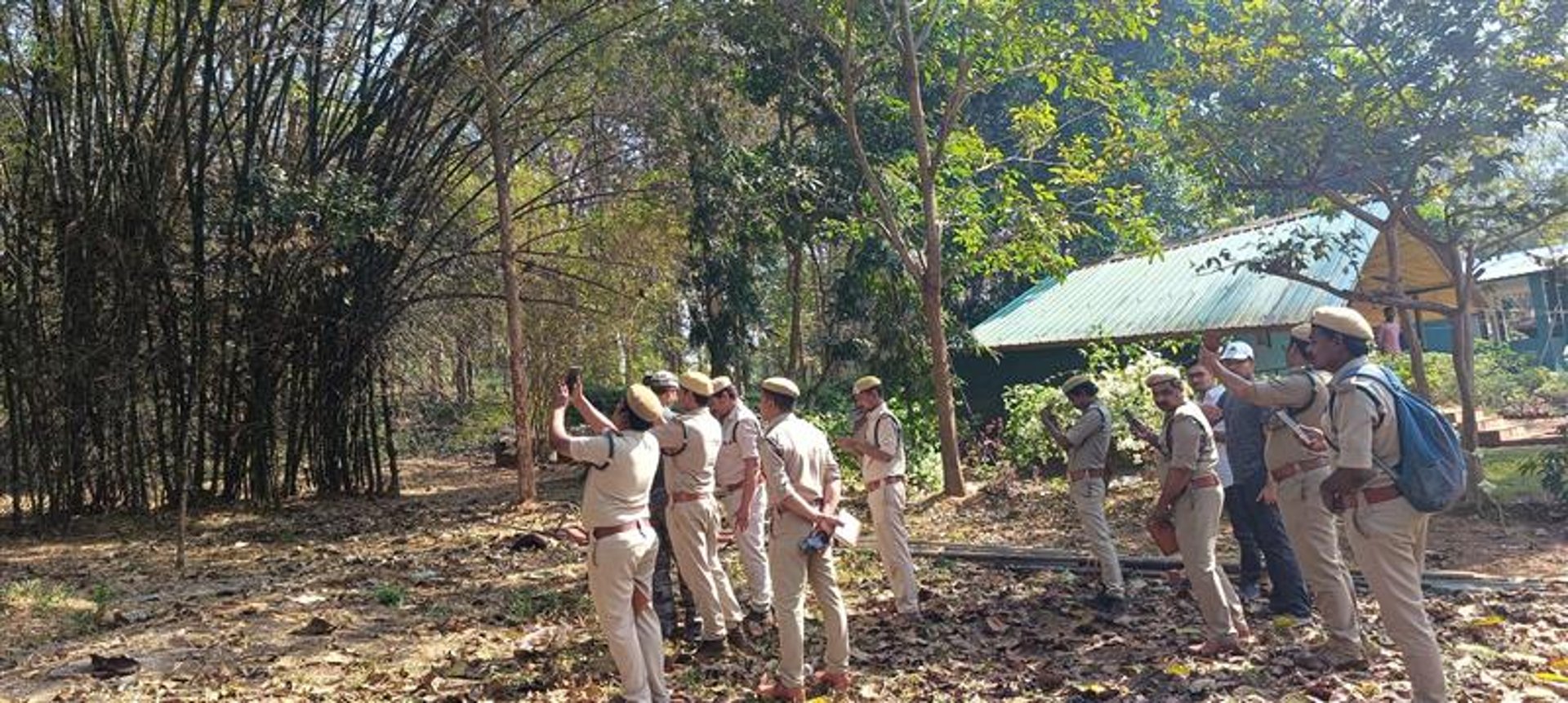
18.02.25
nCount Training in Andhra Pradesh: Strengthening Forest Governance through Technology


In a significant step towards modernising forest governance and sustainable resource management, the Forest Department of Andhra Pradesh—in collaboration with the Initiative on the Forest Economy (IoFE) at the Indian School of Business (ISB)—conducted an intensive nCount training programme for forest officials in the Rampachodavaram Forest Division, Alluri Sitharama Raju (ASR) District. The training, which was held at Vanavihari, Maredumilli, on 5 February 2025, aimed to equip Forest Beat Officers (FBOs), Forest Section Officers (FSOs), and Forest Range Officers (FROs) with digital tools for boundary and resource inventory mapping using the nCount platform and Open Data Kit (ODK) Collect application.
Training Sessions: Building Digital Expertise
The training commenced with an introduction to the nCount technology, emphasising its role in estimating forest resources, mapping biodiversity, and supporting sustainable market linkages. ISB experts presented case studies from Himachal Pradesh, where similar methodologies have been successfully used to create spatial distribution maps of key forest products, generating considerable interest among the Andhra Pradesh officials.
This was followed by technical demonstrations, during which participants registered onto the nCount platform and downloaded mapping forms using the ODK Collect application. Our team guided attendees through species identification, Global Positioning System (GPS)-enabled mapping, and real-time data collection techniques, ensuring that even those with minimal digital exposure could navigate the platform with ease. Despite initial technical hurdles, participants quickly adapted to the technology, successfully submitting 260 forest resource mapping entries and 44 boundary mapping forms by the end of the first day.
On the second day, participants were divided into teams and sent to the field for a practical mapping exercise at Smriti Van. They collect live data using the ODK Collect application and nCount technology. They mapped forest boundaries, recorded tree species, and addressed concerns regarding identifying and classifying climbers, shrubs, and undergrowth species. The session not only helped officials develop hands-on expertise but also sparked discussions about adapting nCount’s methodology to the diverse landscapes of Andhra Pradesh.
The final day focused on data validation and issue resolution. Participants reviewed their collected data, identified inconsistencies, and received guidance on correcting errors. A revised species list was finalised, incorporating inputs from experienced field officers. Furthermore, a WhatsApp support group was established to support continuous engagement. The session concluded with a commitment from the DFO to closely monitor data collection and ensure the integration of nCount into routine forest inventory management.
The session was led by Mr Ravindra Dhama—Indian Forest Service (IFS) officer and Divisional Forest Officer (DFO), Rampachodavaram—and Ms T Anusha—Assistant Conservator of Forests (ACF) and Sub-Divisional Forest Officer (Sub-DFO)—who welcomed the participants and highlighted the importance of digital mapping in promoting sustainable forest management, data-driven decision-making, and enhanced market access for seasonal forest products (SFPs). With over 60 field officers in attendance, the session laid the groundwork for technology-driven transparency and participatory governance.
Following the initial session in Rampachodavaram, a series of range-wise training programmes were conducted to ensure comprehensive adoption of the nCount technology across the division.
On 13 February 2025, ISB team facilitated a session in the Indukuru village to train 10 FBOs from Damanapalli, Devipatnam, and Kondamodhalu. The response was overwhelmingly positive, with participants eager to integrate digital tools into their daily fieldwork. A follow-up session held on 14 February 2025 at the Vanavihari Forest Camp Office saw active participation from Neeraj Hans, a Trainee IFS Officer, who personally assisted in data collection—reinforcing the department’s commitment to technology-driven governance.
The training continued in Addateegala and Rajavommangi villages on 15 February 2025, ensuring that approximately all forest guards were equipped with nCount skills. The FROs of Rajavommangi actively engaged in the exercise, guiding field officers on the importance of accurate species representation across different beats and sections. As the training sessions concluded, designated master trainers were identified to provide peer support and ensure long-term knowledge retention.
Data collection is ongoing, with the Sub-DFO actively monitoring delays and instructing FROs to expedite the process. Weekly reports on data collection trends for tree and grass species are now being shared with the Andhra Pradesh Forest Department to track progress.
This initiative marks a transformational shift in forest governance, leveraging technology, participatory mapping, and community engagement to enhance sustainable resource management in Andhra Pradesh. The groundwork laid through these trainings will yield long-term benefits, strengthen policy decisions, and create economic opportunities for forest-dependent communities.
